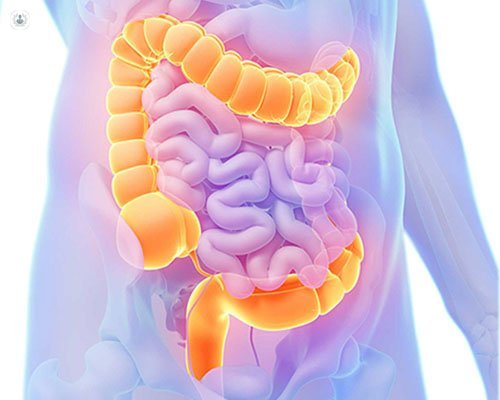Genetic testing for colorectal cancer: What we should know
Written in association with:In this article, distinguished consultant colorectal and general surgeon Mr Ashish Sinha discusses at length genetic testing for colorectal cancer, including how the colorectal cancer genetic test is carried out.

What is genetic testing for colorectal cancer, and how does it aid in preventing this type of cancer?
All cancer is genetic. At some point, especially when we get older, there is a spelling mistake in our DNA, which leads to the development of cancer. The majority of colorectal cancer is sporadic and happens as we get older.
In some patients, colorectal cancer can be detected at an early age, and this is where genetics is very important. Genetic testing offers us the chance to provide patients with tailored treatment strategies. Not only that, but we can offer screening to the patients’ relatives if we diagnose colorectal cancer through genetic testing for colorectal cancer.
Which specific genetic markers or mutations are commonly tested for in individuals at risk of colorectal cancer?
We are discovering more and more genes that have an interplay with the development of colorectal cancer. At this very moment, there are two main syndromes that we look at: one is related to polyps. If you have a lot of polyps, you are at risk of developing colorectal cancer.
The second one is Lynch syndrome, an umbrella term for diseases that are caused by as many as five different genes. It is important to note that the bowel is not the only organ affected by Lynch syndrome.
How is the colorectal cancer genetic test performed?
Genetic testing in the context of colorectal cancer can be done in many ways. It is a laboratory-based test. The endoscopist will carry out a biopsy after a colonoscopy takes place. This laboratory-based test specifically tests for genetic mutations within the tumour.
What are the implications and advantages of undergoing genetic testing for colorectal cancer in terms of prevention and early detection?
The main advantage is early detection. If colorectal cancer is diagnosed at an early stage, the patient has a good chance of getting cured. As soon as you notice any colorectal cancer-related symptoms, such as a change in bowel habit, you should consider colorectal cancer screening.
How do the results of genetic testing guide personalised risk assessment and screening recommendations for individuals with a higher risk of developing colorectal cancer?
We collect and analyse relevant data, such as genetic risk of colorectal cancer, and what types of polyps patients have, and who is getting an early onset of colorectal cancer. We do this to decide on frequency of surveillance, to recommend surgery to take out organs that are at risk before a cancer develops.
To schedule in an appointment with Mr Sinha visit his Top Doctors profile today.


